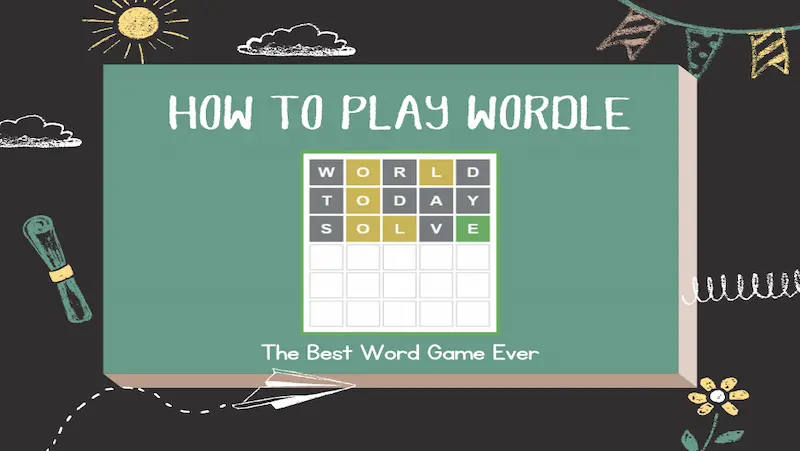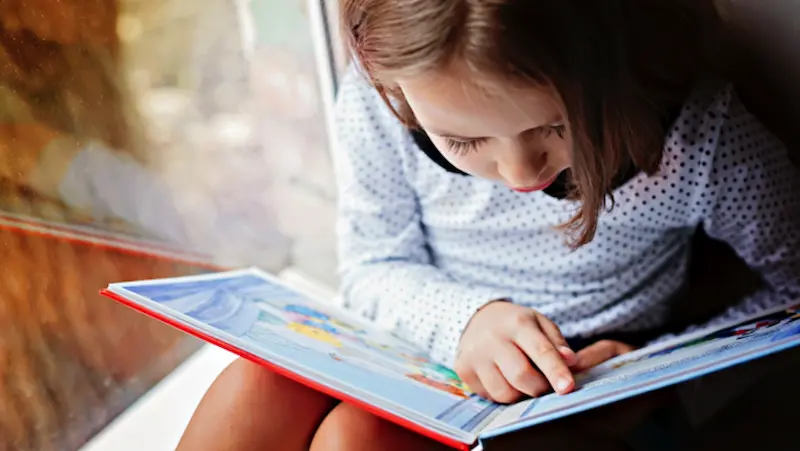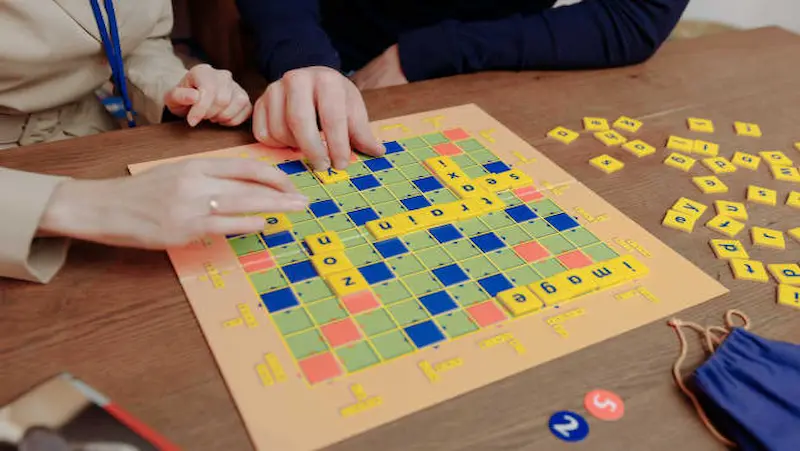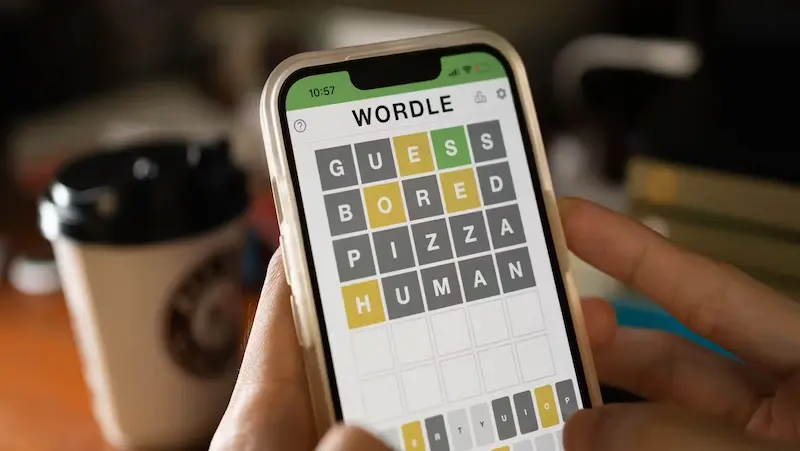Welcome to our blog, where we delve into the wonderful world of Wordle for Kids! If you’re looking to engage your little ones in an exciting and educational activity, then you’ve come to the right place. Wordle for Kids is a captivating word-guessing game that has gained immense popularity among children and parents alike.
Derived from the original Wordle game, which challenges players to guess a five-letter word within a limited number of attempts, Wordle for Kids adds a delightful twist tailored specifically for young minds. This charming game not only promotes critical thinking and vocabulary development but also encourages children to have fun with words in a playful and interactive way.
The benefits of Wordle for Kids are numerous. First and foremost, it stimulates children’s cognitive abilities by fostering problem-solving skills and enhancing their vocabulary. As they engage in the guessing process, kids learn to analyze word patterns, make informed guesses, and eliminate possibilities.
This boosts their logical reasoning and deductive thinking, all while expanding their repertoire of words and their meanings.
Wordle for Kids promotes linguistic creativity and communication skills. As children interact with the game, they are encouraged to articulate their thoughts, express ideas, and discuss possible word choices with their peers or parents. This not only strengthens their oral and written communication but also cultivates a love for language and storytelling.
Whether you’re a parent looking for an entertaining and educational activity for your child or an educator searching for a captivating classroom resource, Wordle for Kids is a fantastic choice.
Join us on this journey as we explore the enchanting world of Wordle for Kids and discover the myriad of ways it can enhance children’s learning and enjoyment of language. Get ready to unlock the power of words and embark on an unforgettable adventure!
Table of contents
How to Play Wordle for Kids
Wordle is a popular word game that not only entertains but also helps children expand their vocabulary and improve their language skills. By combining the excitement of solving puzzles with the joy of discovering new words, Wordle offers a fantastic learning experience for kids. Engage young minds in a delightful and educational activity with a fun Wordle for kids, where they can enhance vocabulary and language skills while having an enjoyable time guessing words.
In this blog post, we will provide step-by-step instructions on how to play Wordle and explore the educational value it brings to children.

Step 1: Set Up the Game
To get started, all you need is a pen and paper or access to an online version of Wordle. You can find numerous Wordle game websites or download dedicated apps on smartphones or tablets. Choose the version that suits you and your child best.
Step 2: Understand the Objective
The objective of Wordle is to guess a five-letter target word within six attempts. The game will provide feedback after each guess, indicating which letters are correctly placed (“correct”) or present in the target word but in different positions (“misplaced”).
Step 3: Make the First Guess
Now it’s time for your child to make their first guess. They can begin by thinking of a five-letter word and writing it down on paper or entering it in the online interface. Encourage them to start with a word they are confident about, considering the initial feedback they will receive.
Step 4: Analyze Feedback
Once the first guess is made, Wordle will provide feedback by displaying letters in different colors. Green indicates that a letter is correct and in the right position, while yellow signifies that a letter is present but in the wrong position. This feedback helps narrow down the possibilities for the correct word.
Step 5: Make Subsequent Guesses
Based on the feedback received, your child should use the information to refine their subsequent guesses. If a letter is green, it means it’s in the correct position, and they can keep it in that position for the next guess. If a letter is yellow, they can try different positions for that letter in the next guess.
Step 6: Use Deductive Reasoning
As your child progresses through the game, they will need to employ deductive reasoning to narrow down the possibilities further. By analyzing the feedback from each guess, they can eliminate incorrect letters and positions, eventually honing in on the target word.
Step 7: Solve the Word
Through a process of elimination and educated guessing, your child will arrive at the target word within six attempts if they make efficient use of the feedback provided. Celebrate their success and encourage them to play again, challenging themselves to solve the word in fewer tries.
Elevate playtime with engaging games for kids, introducing them to the captivating challenge of Fun Wordle, where they can enhance their word skills while enjoying a delightful and educational experience.
Educational Value:
Wordle offers several educational benefits for children.

Vocabulary Expansion
Playing Wordle exposes kids to a wide range of words, encouraging them to explore and learn new vocabulary. It helps enhance their language skills and fosters a love for words and wordplay.
Critical Thinking
Wordle requires logical reasoning and deductive thinking, as children must analyze feedback and make informed decisions for subsequent guesses. This cultivates critical thinking skills and problem-solving abilities.
Spelling Practice
By actively engaging in the game, children reinforce their spelling skills. They learn to manipulate letters, recognize patterns, and think about word structure, leading to improved spelling proficiency.
Patience and Perseverance
Wordle teaches kids the value of patience and perseverance. Solving a word within six attempts can be challenging, but with practice, they learn to stay focused, persist through obstacles, and achieve their goals.
Benefits of Wordle for Kids
In recent years, Wordle has gained significant popularity among individuals of all ages as a fun and engaging word puzzle game. While initially designed for adults, a kid-friendly version of Wordle has emerged, providing children with an enjoyable and educational gaming experience.
Beyond its entertainment value, Wordle for Kids offers several cognitive and educational benefits, making it a valuable tool for young learners. In this blog post, we will delve into the positive effects that playing Wordle for Kids can have on children’s cognitive and educational development. Check out free coding games for kids.
Vocabulary Expansion
One of the primary benefits of playing Wordle for Kids is the expansion of vocabulary. As children engage with the game, they are exposed to new words, allowing them to build a broader lexicon.

Wordle prompts players to guess words by providing feedback on correct letters and their positions, enabling kids to refine their spelling and increase their word recognition skills. Additionally, the game encourages the use of context clues and deductive reasoning, further enhancing children’s language abilities.
Critical Thinking and Problem-Solving Skills
Wordle for Kids requires players to think critically and employ problem-solving strategies to uncover the hidden word. By analyzing the feedback received from each guess, children learn to make informed decisions about which letters to try next.
They develop logical thinking skills as they assess the possibilities and adapt their approach based on the given information. This process fosters critical thinking and enhances their ability to solve puzzles, which can translate into improved problem-solving skills in various academic subjects. Stimulate young minds with intriguing riddles for kids, coupled with the engaging challenge of Wordle, to nurture critical thinking skills while sparking joy and intellectual growth.
Reading Comprehension
In Wordle for Kids, players must read and comprehend the feedback provided by the game to make educated guesses. This constant interaction with text promotes reading comprehension skills as children practice decoding words and understanding their meaning within the given context.
The game’s feedback system encourages children to analyze letter patterns, recognize word structures, and make connections between letters and sounds. Such engagement supports the development of reading fluency and comprehension, crucial skills that lay the foundation for academic success.
Patience and Perseverance
Playing Wordle for Kids also cultivates patience and perseverance in young learners. The nature of the game, where players iteratively guess letters to find the hidden word, encourages children to persist despite initial setbacks or incorrect guesses.
Through trial and error, they learn the value of perseverance and the importance of not giving up when faced with challenges. This resilience can positively impact their academic performance and instill a growth mindset that extends beyond the game itself.
Social and Collaborative Learning:
Wordle for Kids can also be used as a collaborative learning tool, fostering social interaction among children. When played in groups or pairs, it promotes communication, teamwork, and shared problem-solving.
Collaborative play allows children to learn from one another, exchange ideas, and collectively work towards solving the puzzle. This cooperative environment enhances social skills, encourages positive interactions, and creates a supportive learning atmosphere.
Immerse young hearts and minds in the world of mindfulness through engaging mindfulness games for kids, and add an educational twist with Wordle for kids, fostering focus, creativity, and vocabulary in an enjoyable way.
Wordle for Kids Tips and Strategies
Wordle, a popular word-guessing game, has captured the hearts and minds of players of all ages. Designed to improve vocabulary and critical thinking skills, Wordle can be an excellent educational tool for kids. In this blog post, we will explore some valuable tips and strategies to help young word wizards excel at Wordle for Kids. Whether they are just starting or looking to improve their performance, these tips will set them on the path to success.

Start with familiar words
Encourage your child to begin with words they are already familiar with. Starting with simpler words that are part of their everyday vocabulary will boost their confidence and help them get a hang of the game mechanics. Once they gain more experience, they can gradually move on to more challenging words.
Analyze word patterns
One of the keys to success in Wordle is identifying word patterns. Teach your child to look for patterns by observing the letters that appear in the correct position after each guess. For example, if the letter ‘A’ is in the right place for two different words, it is likely to be part of the target word. This deduction process will assist your child in making more informed guesses
Take advantage of the process of elimination:
As your child progresses in Wordle, they will encounter different letters that don’t fit into the word. Encourage them to use the process of elimination to eliminate those letters from consideration. By ruling out letters that don’t appear in the target word, they can narrow down the possibilities and make more accurate guesses.
Prioritize vowels:
Vowels are often the key to cracking the Wordle code. Teach your child to focus on guessing vowels early on, as they tend to appear more frequently in words. By guessing vowels strategically, they can quickly identify the correct ones and use them to their advantage in narrowing down the possibilities.
Use context clues:
Wordle for Kids often features words related to familiar themes such as animals, colors, or everyday objects. Encourage your child to consider the context of the given word to make educated guesses. For example, if the theme is animals and the letters “L,” “I,” and “N” are correct, your child may deduce that the target word could be “lion” or “elephant.
Practice perseverance and patience:
Wordle is a game of trial and error, and it’s important to instill the values of perseverance and patience in your child. Let them know that it’s okay to make mistakes and that learning from them is part of the process. Encourage them to keep trying, even when faced with challenging words, as practice and persistence are key to improvement.
Conclusion
In conclusion, the Wordle game has proven to be an invaluable educational tool for children, offering numerous benefits that enhance their language skills. By engaging in this enjoyable and interactive word-guessing game, children are exposed to a wide range of vocabulary and linguistic concepts.
The game prompts them to think critically, analyze patterns, and make educated guesses, thereby fostering their problem-solving abilities and logical thinking.
Wordle encourages children to actively participate and communicate with their peers or family members. This collaborative aspect of the game promotes social interaction, teamwork, and effective communication, as players share ideas, strategies, and clues. In turn, this enhances their verbal and written language skills, as they learn to articulate their thoughts and engage in meaningful conversations.
Wordle also cultivates a love for words and language, making learning enjoyable and motivating for children. As they encounter new words and phrases, they are motivated to expand their vocabulary and deepen their understanding of language structures.
This process of continuous learning and exploration instills a lifelong passion for language and encourages children to become confident and proficient communicators.
In today’s digital age, where screens and technology are ubiquitous, it is crucial to leverage educational tools like Wordle that combine fun and learning. The game’s accessibility, adaptability, and educational value make it an ideal resource for parents, teachers, and educational institutions to foster children’s language development.
By incorporating Wordle into their learning environments, educators can create an interactive and immersive experience that empowers children to enhance their language skills while enjoying the process.
In summary, Wordle serves as an educational powerhouse, offering children a platform to enhance their language skills in a fun and engaging manner. From expanding their vocabulary and promoting critical thinking to fostering communication and instilling a love for language, the game provides numerous benefits that are invaluable in a child’s educational journey.
By recognizing and harnessing the educational value of Wordle, we can empower children to become confident, articulate, and effective communicators in our ever-evolving world.
Brightchamps offers best coding classes for kids, providing them with the opportunity to learn and master coding skills. Which makes worth of spending their valuable time.
The BrightChamps blog page serves as a treasure trove of insightful articles, activities, and resources designed to inspire and educate, making it a valuable hub for parents, educators, and anyone passionate about nurturing young minds.
Elevate your child’s learning journey with BrightChamps, the leading EdTech company paving the way for a brighter future.
Frequently Asked Questions
A1: Wordle for Kids is an educational game that helps children improve their vocabulary and spelling skills while having fun. It encourages critical thinking and word recognition, making learning engaging and interactive.
A2: Yes, the Wordle games on our website are available for free download and printing, allowing easy access for parents and educators.
A3: Parents can use Wordle to engage their children in word exploration and learning. By playing together, parents can discuss new words, and their meanings, and encourage their children to use those words in sentences.
A4: Yes, Wordle can be adapted to accommodate different age ranges and skill levels. It offers varying difficulty levels, allowing children to progress at their own pace.
A5: Yes, our website offers a range of fun and educational games beyond Wordle. Parents can explore various interactive activities designed to enhance their child’s learning in a playful manner.


 We are an army of educators and passionate learners from BrightChamps family, committed to providing free learning resources to kids, parents & students.
We are an army of educators and passionate learners from BrightChamps family, committed to providing free learning resources to kids, parents & students.








